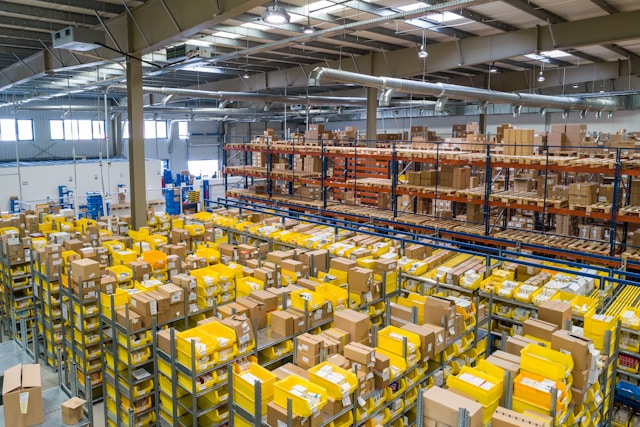Applying innovative technological solutions in the logistics industry allows companies to accelerate their development and improve their processes significantly. Implementation of technological innovations can substantially increase operational efficiency. For this reason, many organizations in the logistics sector are enthusiastically implementing the latest technologies. But which ones will have a decisive impact on the future of transportation? How can companies leverage these innovations to gain a competitive advantage?
Why is technological innovation necessary in the logistics sector?
Logistics companies investing in advanced technologies gain a competitive advantage over those not integrating technological solutions into their business operations. Implementing cutting-edge technical systems is key to the efficient management of warehouse and distribution processes, resulting in optimized uptime, increased productivity, and reduced operating costs throughout the supply chain.
The role of technological innovation in the logistics sector is invaluable because:
- Transportation management systems (TMS) facilitate monitoring shipments and fleets, providing complete transparency of the flow of goods.
- Advanced warehouse management systems (WMS) offer automation and precision in warehousing processes.
- Autonomous vehicle solutions reduce dependence on the human factor, potentially reducing operational errors and labor costs.
- Data analytics and intelligent analysis tools allow for ongoing supply chain monitoring and rapid intervention when dysfunctions are detected.
- Mobile applications tailored to the needs of the logistics industry improve the management of delivery processes and enhance customer service by streamlining communication and tracking shipments.
What are the applications of modern technology in logistics?
Implementing modern technologies in the logistics industry is progressing rapidly, as technology itself is a field of continuous development. Integrating logistics services with technological innovations contributes to technical progress and allows companies to provide services at a higher level, increasing their competitiveness and customer satisfaction.
Smart warehousing solutions
Efficient storage methods play a key role in the logistics industry. Advanced warehousing systems are required to ensure optimum storage of products before shipment. These intelligent solutions, which embody modern technologies in logistics, enable operations such as precise inventory monitoring and efficient management of goods location, significantly reducing the time required for these tasks. Modern technologies, at the core of warehouse systems, allow for more efficient and practical recording of inventory data.
Autonomous vehicles
Implementing autonomous vehicles in logistics significantly reduces the need for human resources, which is one of the most effective ways to reduce operating costs in road transportation. Such technological advances also speed up the delivery of goods, increasing customer satisfaction. It is therefore worth choosing a trusted partner specializing in international road transportation, such as AsstrA, to ensure the highest quality of transportation services, where innovation goes hand in hand with reliability and efficiency.
Blockchain
Blockchain technology is a key element that enhances the security and transparency of the supply chain management process. Its use has a significant impact on reducing the possibility of fraudulent activities throughout the logistics process. That’s why blockchain is an integral part of modern technologies used in logistics, bringing revolutionary changes to how transactions and flows of goods are monitored and verified.
IoT
The Internet of Things, also known as IoT, is a communication network that connects physical objects with each other and larger information systems. With this technology, devices can communicate with others over the Internet, enabling data exchange. In logistics, IoT is making a significant impact, becoming one of the industry’s key elements of modern technology. It allows data collection from transportation and warehousing equipment and enables remote monitoring of equipment and vehicles, making supply chain management more efficient.
Mobile applications
Mobile applications developed for the transportation industry represent one of the technological breakthroughs in logistics. Their primary function is to optimize the management of the delivery process and significantly improve the quality of customer service, which is the main advantage of these tools.
Sensor technologies
Sensor technology allows real-time monitoring of conditions such as temperature, humidity, and other key product parameters. This innovative approach directly impacts the safety and preservation of the quality of transported goods, allowing transport companies to offer services at a higher level of professionalism.







